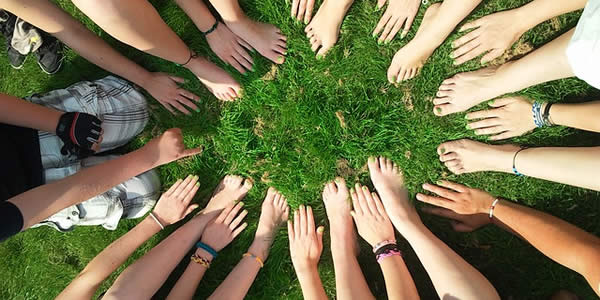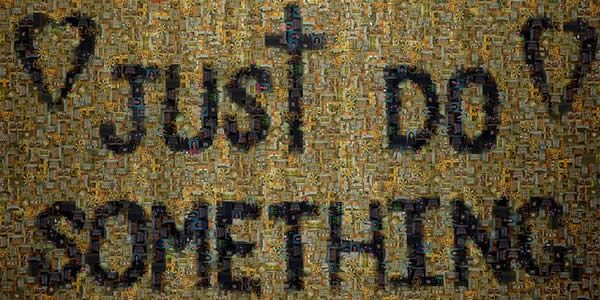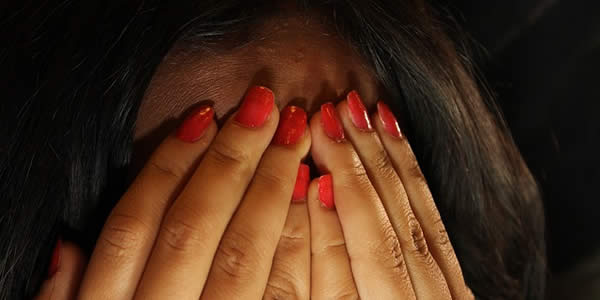Undoubtedly, this blog post will be controversial for several reasons. First, I promise it will be uncomfortable, but this place of discomfort is often a chance to grow. Second, many of you will disagree and you are perfectly right to do so, of course, in a respectful manner.
Rarely do we openly talk about power and exclusion, but we need to start having real conversations. I promise this all relates to magic if you consider magic the art and science in acting according to will.
As an occultist, I can tell you that I personally do not always feel welcome at all pagan events. I’d like to, but there is no place for what I do. Certainly, associates and friends more clearly labeled as Left Hand Path, or people embracing darker elements of spirituality are often shunned and shamed. While we would love to think of ourselves as good, we have to acknowledge that group and local social norms change from region to region and often the leaders on the ground dictate who is “in.” Certainly, the tyranny of being the “good person” leads to disasters such as Kenny Klein, or the hosts of “good” people that may be considered “good” until something happens to show people are not. The point is not to single those people out, but to point out our reasonable inability to converse about them and what happens when we discover something as a mature community.
One cannot go to any event without hearing about witch wars and learning the strong cliquish nature of the events. Hell, I once took deep political flack because I strongly objected to using an eleven year in an invocation/possession ritual. Social demonization occurred, of course, as this is the weapon of choice for many people. I won’t even get into the issue of race, which is an unbelievable difficult and painful issue that affects the movement.
Paganism, and surprisingly the occult, is one of the fastest growing “religions” in America, but we have few churches outside of private land, and many festivals are struggling. The people who show up to any event are often are the vocal minority in the greater pagan and occult movement. The overwhelming majority is silent, hidden and unknown. Most importantly, they are not coming out to events and we should ask why. Even then, we have to admit there are deep and seemingly unresolvable divisions between the people who bother to show up. We simply have greater problems than merely our interpersonal issues.
We have a deep problem of communication, emotional intelligence, and empathy. In many ways, the small issues between people prevent us from seeing the changing landscape around us. Individuals are certainly wise, reasonable, and compassionate, but the greater egregore of the movement operates closer to what we experience at the High School level of group dynamics. Most movements, regardless of religion, tend to operate at that level and this is often why they struggle.
Unfortunately for many of us, our faith demands expression and it deeply hurts to have to hide that expression. I prefer to call the greater pagan experience a movement, and we have to admit, a highly marginalized movement in the greater societal scheme.
We all, as a movement, have to force ourselves to embrace a much harder road, and that is where we can start to collectively accept a different vision for what the movement could be. Such a vision does not have to be fanatical, hierarchical, or even rule based, but it is one that requires action and inclusion.
Doing “Something Different,” requires only different reactions.

Celebrating the Differences, while seeing the humanity.
Paganism and the Occult, as a movement, have multiple competing and divergent philosophical beliefs. Some of these beliefs are simply incongruent and in opposition with each other. The edges of the movement are somewhat defined in opposition to the dominant social religious structures of the greater organized western religious culture. Different groups of Occultists, Heathens, Satanists, Wiccans, Traditional British Witches, and more may not identify with the label of “Pagan,” but certainly the mainstream Christian view of these paths as “Other,” and that other has deep historical roots aligned with sinister impressions developed through centuries of propaganda. Fortunately, we live in a country where we are guaranteed some rights of religious freedom to a point, which I will get to in a minute.
I can guarantee that there are people, even on Patheos, that I strongly disagree with on the purpose of magic, the definition of community, and even nature of the universe. I would never wish them to lose their kids, go to jail, not receive food, or not be able to get treatment because of those ideological disagreements. I may not even like some of those people, but if they are not threatening me, I can not conceive of walking up and punching someone for those beliefs. Although, we would like to believe this is true of the greater society, violence is entering the discussion in the greater society, and the anger of any “Other” is becoming more dangerous.
To me, certain political undercurrents are bringing out a real challenges to the cultural tolerance fostered by the experiment and integration of Gen-X. While these political undercurrents, and the people supporting them, may be the minority, they are the vocal and powerful minority, which has unbelievable sway over our institutions. If you want to be horrified, do Google searches on the number of states that allow creationism in public school science classrooms.
Right now, while we spend our precious time on the witch wars and gossip wars, people cannot get proper psychological treatment because their faith gets treated as an obstacle. Most drug rehab and alcohol rehab are rooted in Christianity. Homeless shelters, food pantries, and support services are increasingly tied to religion and offer a “convert to live” option. Right now, there are courts that will assign biblical punishments to people. Not all pagans and occultists have the luxury of moving to more tolerant areas. One does not have to turn far to see this influence.
Many of my single white male occultists associates would say there are no issues, but the truth is very different. I personally know a multitude of cases where religion was used to assign child custody against the best interests of the child. If it was just a little more common, it would be a stereotype. Although religious discrimination is illegal, in no-fault states it is very very hard to prove discrimination, and I assure you it is alive and well. Culturally, I once had a stack of little helpful “you’re going to hell pamphlets” left for me because someone had posted my legal name instead of my nom de plume, and my rank in Vodou. Yes, it made me uncomfortable. I know several people who are in professional careers, and depending on their employer, it can be a large problem. Just because it is not a problem for you, it doesn’t mean it’s not a problem for other people.
If we pay attention to societal trends and the sociological trends, the strong alt-right reassurance has legitimized and made the problem worse for many on-the-ground pagans and occultists in recent years. We have to first admit that this is not going to go away, and second, that we are only entitled the rights which we fight vehemently to keep.
One answer is that nothing can be done, but I will offer a different viewpoint with actionable steps. Each of those steps, I promise will resonate with practical and intense individual spiritual practice and collectively will translate to political power and a greater individual and group freedom.
Defining social exclusion and gossip as a type of social violence is not far fetched. Unfortunately, we do not have the real luxury of engaging in modes that waste resources. We need our resources.
Our time and support is our GREATEST resource, Let’s all agree to put it to a greater purpose.
Why do I care, Why am I reacting?
If I was a Wiccan, why should I care that a Satanist is at an event? If the response becomes because they are evil, okay, why are they evil? Have they ever done something to you that seems evil to you personally? LaVeyan Satanists are strict materialists, so clearly they are not serving a dark lord. Sure, I can see the allure to strongly objecting to the Gothic styling and dark poetry… Just kidding.
The first step to change a greater movement is to look in the mirror and ask yourself: Why do someone else’s beliefs produce a strong enough reaction that I feel I must vilify them in some way? The reaction you have says nothing about the belief system in question and much more about your values, beliefs, and stereotypes. We could all do well to take a step back from the emotional reaction.
In the process of stepping back, we can ask even more questions. I might ask if the reaction is caused by a stereotype or information from other people. Do I object to something the person has specifically said? And, why do I have the reaction? Emotional reactions are rarely logical, and often push us to act.
If we can step back and understand the why, we can rationally examine our own beliefs and choose instead to conscientiously act. In the the situation with the LaVeyan Satanist, perhaps we disagree with the idea that a person should act in a selfish manner (which I am not saying I do). Once we get past the emotional weight tied to the belief, do we not see the shared humanity of the person? If we use our social power to isolate a person because of their beliefs, aren’t we acting in a selfish manner to make sure we are in our comfort zone? While the issue with Satanist is one example, I could easily ask people I have met who extol somewhat racially biased inclusion criteria with such fervor, what and why is the emotional reaction there? What do they personally get out of the beliefs, and why do they think this is a helpful belief? For the record, I am very strongly against racially biased inclusion, but I can sit down with a person to understand what they get out of such a belief.
Now, if I hear a statement about another person, I can try to determine if it meets Socrates’s Three Sieve criteria: is it absolutely true, is it essential, is it good? If everyone in the pagan/occult community agreed to only to spread a rumor of information if it met one of the sieves criteria, how much additional goodwill and energy would we have to actually support each person? I know what I am asking is very hard to do, but it happens at an individual level. It’s a choice each individual makes moment to moment. What type of community do you wish to have?
Are We Actually Supportive?

Do we actually care and act as a community? Before we answer yes to this question, when is the last time you visited a local pagan who was in hospital? Do we even know how to support each other? This question is harder.
How many people, even in the greater local community, know what skills and opportunities people have in a professional sense? Let’s ignore the author presenter class of which I am one of, but I have a day job. I meet tons of people and because of all the issues I covered above, most of the time, I do not actually know what skills they have. If you go to Christian services and conventions, you can bet people are networking in a professional sense. I know a hell of a lot of occultists and pagans are into information technology. While you cannot officially hire or fire on religious grounds, I would certainly give interview preference to someone I had met at an event if I knew they had the skill set the job required. If I knew of Pagan/occult friendly lawyers and counselors, in my area, I would probably partner with them. There is a market and in many cases, someone’s religion matters a great deal in the court–and whether or not a lawyer or counselor tries as hard as they can.
One can easily see how this relates to interpersonal magic, and group political power. When we get together, we talk about “our community,” or our opinions, but the conversation never switches to how can we help each other in a practical sense. Sure we had food drives, but we could do so much more interpersonally and effectively.
This continues into physical locations. In paganism and the occult, spaces are often privately owned and property owners allow people to use land or a place to gather. The financial burden for creating physical spaces for shared work is high. Even if people donated 1% of their income to a temple, which comes out for most people to be 300-1000 a year, we could afford to have more public spaces. Spaces that have dual roles as food banks, job retraining, and skill building. Many Christian organizations already do this, and once you get the initial foundation set up, many grants exist to grow and build. Yes, it can be done.
This of course, only works, if everyone involved is trying to avoid the gossip wars and of course everyone has signed agreements for use. That can’t work you say? In Columbus, there is a food pantry that allows anyone to use the center and reserve it for meetings after the people go through training. Most of the time, there is no problem and many different groups use the space with no issues. It can work, it is just outside of the vision we hold for our collective, right now.
If I had a few people to help me, I have often thought about setting up a professional services web page where pagans and occultists could post about the professional services they offer. While tarot, divination, and consulting are professional services, I’ve thought that this web site could share information on the lines of project management, computer programming, design, event planning, photography, and the multitude of skills that we have that fall outside the spiritual and the occult. We as a community have the skills related to the religious aspects well shared and advertised, but most people do not want to be professional sorcerers or diviners. They want a job and, for example, they may be truly talented landscapers or even janitors.
About my occult involvement, in the age of social media, a company might hesitate hiring me. If the community was supporting each other and using the power of the movement to forward jobs back and forth instead of gossip, more and more people could be open and honest about their beliefs. While there will always be some people who cannot accept those beliefs, as more people are open about their beliefs, it becomes more normalized and easier to defend those beliefs in the greater culture. Some of you, not all, would be shocked at how many people who have Masters and PhD’s have leanings into the occult and paganism. They just aren’t talking about it. Every single person I know who is a professional and into these things (myself included), would rather work for a company or opportunity where they could wear a small pentagram (possibly a chaos star for me) or have a small altar without consequence.
It’s not too late to reach for your dreams AND be of service.
I can sing you tale of at least three people who were social workers who had difficulty because they were semi-open about their pagan beliefs. These are the people we need in those positions to support our rights. Did the community ever honor those people or support those people? You probably know the answer, for the most part it was irrelevant to the local areas they lived in. What mattered instead was who they were tied to, the he/she said of event politics, and who was banging who. These types of people are community assets as are pagan/occult managers, police officers, parole officers, entrepreneurs, and every other position.
Likewise, if a lawyer, counselor, accountant or professional was openly pagan friendly or occult friendly, would they gain enough clients to make up for the potential clients they would lose in mainstream markets? The answer right now is probably no, but it is not because there are so few pagans or so few occultists. The answer is no because we are not supporting each other in an interpersonal way that augments the positive potential of each individual. Again, these problems are not unique to the pagan movement, but the law and business world have biases that work against this movement. It is a personal choice to support each other in this manner, and one you can make right now. Let’s think about the time spent on “supporting the good” people, and the witch wars and realize what we could be doing for each other, right now, by simply choosing to. The personal magic here is that once the process starts, you can bet people will come around to help you. We just have to learn to trust each other.
Do Something.

Did you know in many cases local elections such as a school board member, or even a town board member are not contested. The school board position is an interesting one because the members often set the allowed curriculum. Remember creationism in schools? The school boards–at the local level–often allow and approve that. These are easy part-time positions, and they matter.
Need some other ideas on what getting involved can look like? How about park board members (for the cities that elect them)? How many Pagan Pride and other events happen in parks? Some cities have strong advisory committees, and some have elected boards.
I know three stores owned by astute and concerned pagans in three cities who all eventually joined the chamber of commerce of their local areas or serve on the city boards. Of course, these activities support their business, but they also support the greater pagan and occult movements. Generally, people have a lot of misinformation about paganism (due to centuries of propaganda), but when you start working on a project with people, they will see you differently. The propaganda falls away, and we are left with some very intelligent conversations about differing religious beliefs. As a project manager, I have had several conversations about my spiritual practice when people get to know me, but in general whether or not they believe it works, they understand at some level it gives me the inspiration and drive to work towards my own success. The fact I do my job reasonably well changes their opinion. I have heard the same thing from the three people from the three different areas who worked to network in this way.
We have to realize that a good portion of the shame, and in fact witch wars in general, comes from internalized external norms of the greater society to a marginalized one. If we work together, in real meaningful ways, we can work past our own internal fear and shame. We can help each other as members of this grand experiment to excel and support the differences between us while supporting each other.
The purpose of this blog is not to single anyone out outside of myself. I present a different vision for where we could go that integrates individual choice and builds a different wave in the movement itself. By recognizing the greater issues and problems, we can make different individual choices that create a different landscape in the community. Thus we become the movers and shakers creating the reality we would like to see by choosing and acting with intention in line with will.


Patheos Pagan on Facebook.

the Agora on Facebook
Full Frontal Magic is published on alternate Sundays here on the Agora. Subscribe via RSS or e-mail!
Please use the links to the right to keep on top of activities here on the Agora as well as across the entire Patheos Pagan channel.


















